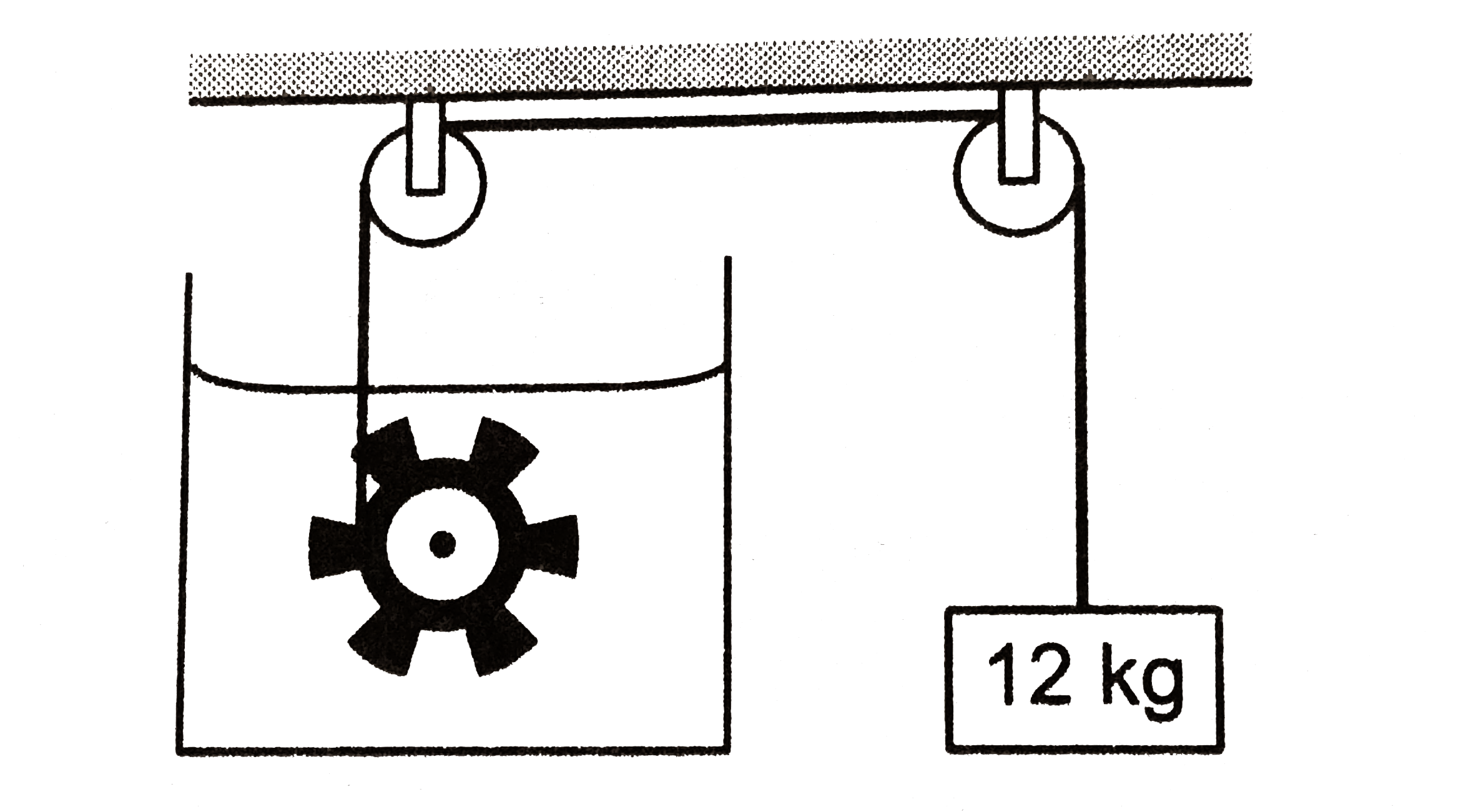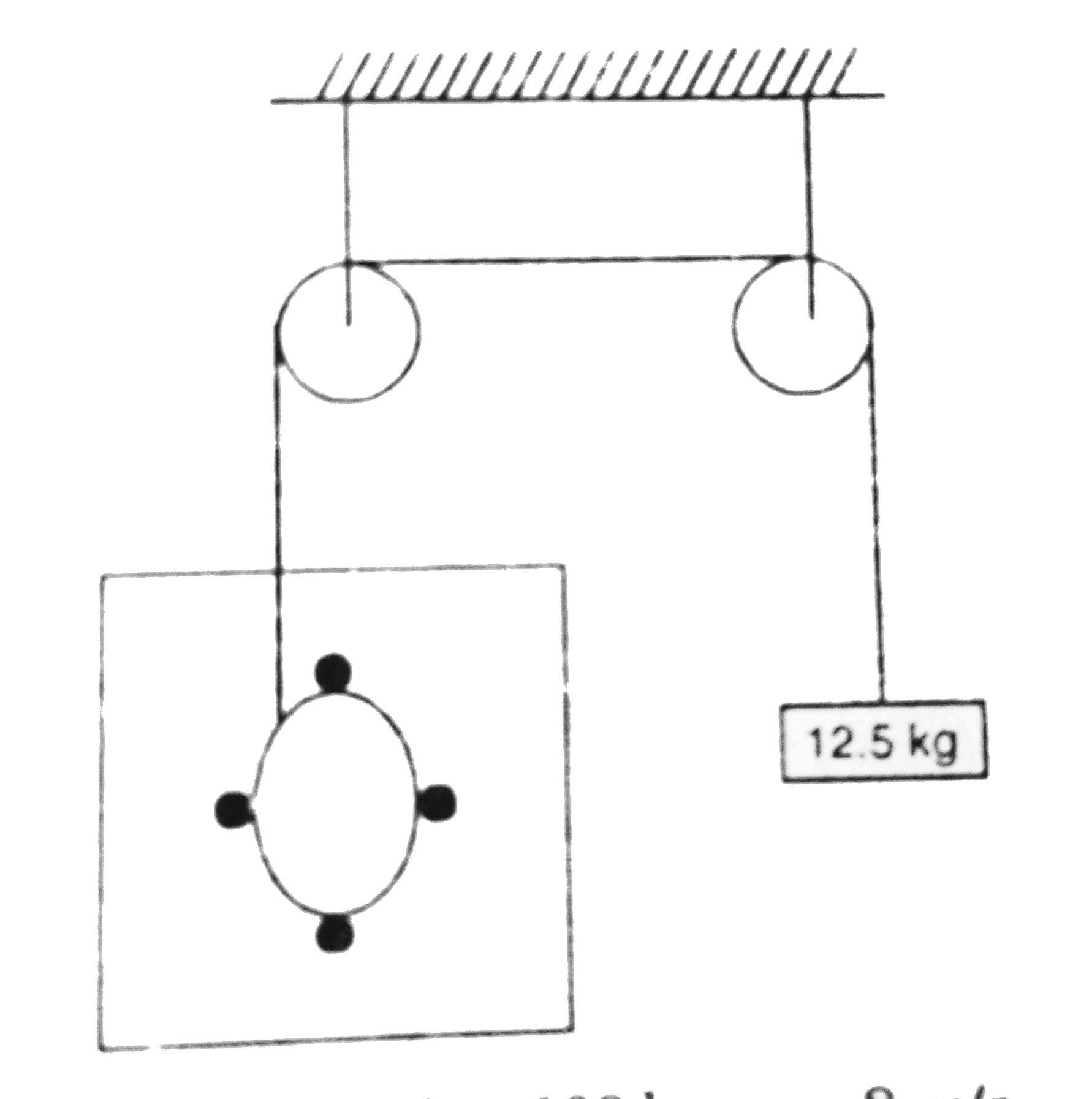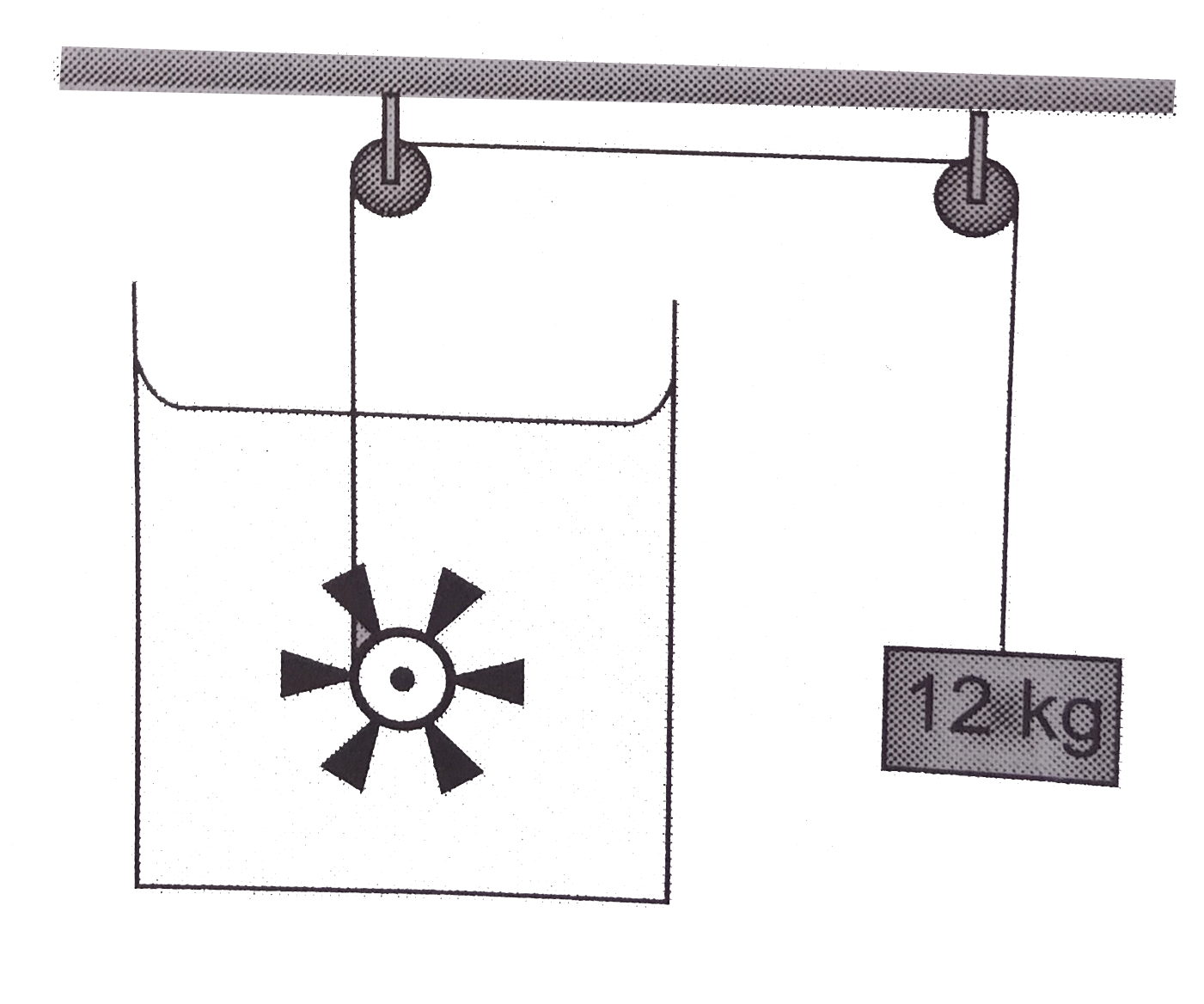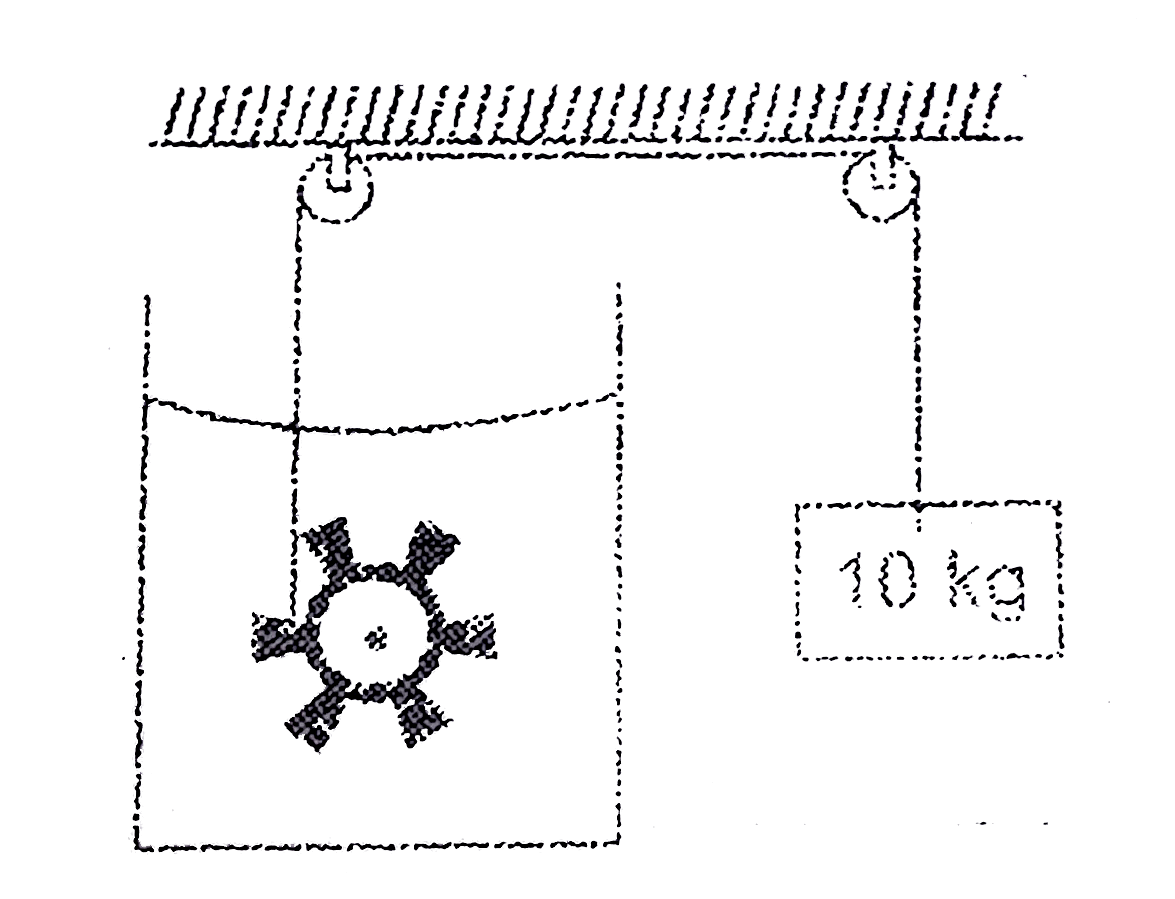Shows a peddle wheel couple to a mass of 12 kg through fixed frictionless pulleus. The paddle is immersed in a liquid of heat capacity 4200JK−1 kept in an adiabatic container. Consider a time interval in which the 12 kg block falls slowly through 70cm. (a) how much heat is given to the liquid ? (b) how much work is done on the liquid? (c ) calculate the rise in the temperature of the liquid neglecting the heat capacity of the container and the paddle.

The correct Answer is:A, B, C, D
(a) heat is not given to the liqiud Instead, the mechanical workdone is converted to heat.
So, heat given to liquid is zero
(b) Work done on the liquid is the PE lost by the 12 kg mass =mgh<br>=12x10x0*70ltbrge84 J
(c ) Let rise in temperature be Deltat We know, 84=msΔt,
⇒84=1×4200×Δt(form=1kg)
rArr Deltat=(84)/(4200)=(1)/(50)=0*02 k.

Topper's Solved these Questions
- LAWS OF THERMODYNAMICSBOOK - HC VERMACHAPTER - LAWS OF THERMODYNAMICSEXERCISE - Short Answer
15 Videos
- LAWS OF THERMODYNAMICSBOOK - HC VERMACHAPTER - LAWS OF THERMODYNAMICSEXERCISE - Objective 2
5 Videos
- KINETIC THEORY OF GASESBOOK - HC VERMACHAPTER - KINETIC THEORY OF GASESEXERCISE - Exercises
62 Videos
- NEWTON'S LAWS OF MOTIONBOOK - HC VERMACHAPTER - NEWTON'S LAWS OF MOTIONEXERCISE - Exercises
42 Videos
Similar Questions

As shown in figure a paddle wheel coupled to a mass of 12 kg through fixed frictionless pulleys. The paddle is immersed in a liquid of heat capacity 4200JK kept in an adiabatic container. Consider a time interval in which the 12 kg block falls slowly through 70 cm.
(a) How much heat is given to the liquid?
(b) How much work is done on the liquid?
(c ) Calculate the rise in the temperature of the liquid neglecting the heat capacity of the container and the paddle.
View SolutionA paddle wheel is connected with a block of mass 10kg as shown in figure. The wheel is completely immersed in liquid of heat capacity 400J/K . The container is adiabatic. For the time interval in which block goes down 1m slowly calculate
(a) Work done on the liuid
(b) Heat supplied to the liquid
(c ) Rise in the temperature of the liquid Neglect the heat capacity of the container and the paddle. (g=10m/s2)

View Solution
Knowledge Check
A block of ice at −20∘C having a mass of 2kg is added to a 3kg water at 15∘C. Neglecting heat losses and the heat capacity of the container
AThe final temperature will be less than 0∘CBIce will completely meltCWater will partially freezeDFinal temperature will be more than 0∘CIf a liquid is heated in weightlessness, the heat is transmitted through
AconductionBconvectionCradiationDneither, because the liquid cannot ber heated in weighlessnessIf a liquid is heated in weightlessness, the heat is transmitted through
AConductionBConvectionCRadiationDNeither, because the liquid cannot be heated in weightlessness
A lead block of mass 2 kg is supplied with a heat energy of 3600 J. Calculate the rise in temperature, if the sp. heat capacity of lead is 130Jkg−1C−1 .
View SolutionA sample of 100 g water is slowly heated from 27∘C to 87∘C. Calculate the change in the entropy of the water specific heat capacity of water =4200Jkg−K
View SolutionJ/kg∘C is the unit of (specific heat capac ity/heat capacity).
View SolutionSpecific heat capacity of water is ____ J kg−1K−1.
View SolutionTwo containers contain two liquids A and B. The mass of liquid A is half the mass of liquid B. Both of them are heated to that extent so that the increase in the temperatures of the liquids is the same. The heat supplied for this purpose in liquid A is double that in the case of liquid B. Find out the ratio of the specific heat of A and B.
View Solution
